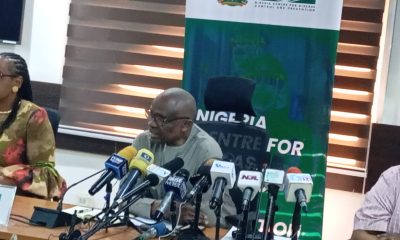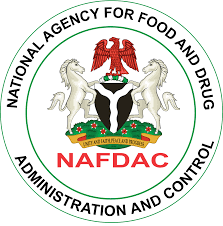NEWS
FG, UNICEF Expanded Schemes to Upskill 20m Young Nigerians- Osinbajo

No fewer than 20 million young Nigerians would be impacted with digital skills through an initiative of the Federal Government and the United Nations International Children’s Emergency Fund (UNICEF), Vice President Yemi Osinbajo disclosed on Monday, in Abuja.
Osinbajo’s spokesman, Laolu Akande, in a statement, said this was part of a pre-recorded message delivered by the vice president at the official launch of the Generation Unlimited (GenU) programme in Nigeria.
GenU is a global, multi-sector partnership initially launched in September 2018, in collaboration with over 200 partners, and impacting over 100 million young people globally, through innovations and programmes in more than 40 countries across six continents.
Osinbajo said that the initiative, which offered expanded education, training and employment, targeting 20 million Nigerians from aged between 10 and 24 years, from 2021 to 2030, would positively impact the country’s future job growth enabling programmes.
“This programme is important because it promises to provide 20 million Nigerians with digital skills; link them to entrepreneurial and other job opportunities and assist them in realising their full potentials.
“Over the next couple of years, we will provide digital learning, employment, entrepreneurship and engagement for and with 20 million young Nigerians.
“This process is not only significant for our socio-economic development as a nation in the coming years, but also provides a learning asset for developing future job growth enabling programmes.
“Nigeria has one of the world’s largest young populations; and it bears repeating that our country’s youth are the nation’s present and indeed its future; the cost of failing to invest in them is quite simply, unimaginable.
“So, we are excited to be a part of the ambitious goal of reaching young Nigerians with this opportunity.
“The work is massive, and we know we cannot achieve this objective without strong partnerships; and so, the presidency, the relevant ministries and state governments will be collaborating with GenU Nigeria, the private sector, the international community and our young people themselves to make this a reality.”
Osinbajo said GenU Nigeria would have three key components– Digital Skills Development, The Workforce Readiness Programme and Youth Engagement — as youth employment, and especially the empowerment of female entrepreneurs, was a major aspect of GenU Nigeria.
The vice president commended private sector partners such as Airtel, the Tony Elumelu Foundation, Jobberman Nigeria, among others, for their innovative work with young entrepreneurs throughout the country and for their commitment to GenU Nigeria.
The introduction of GenU Nigeria was in collaboration with state governors, including Govs. Babajide Sanwo-Olu of Lagos State, Abdullahi Ganduje, Kano State and Godwin Obaseki of Edo.
Edward Kallon, UN Resident Coordinator, was also part of the initiative as a development partner.
GenU Nigeria, billed to be implemented in 12 states distributed across the six geo-political zones in the country, has a wide range of development partners, including the AfDB, GIZ, ILO, UNDP, USAID, and private sector organisations.
The participating states and their zones include: Northwest – Kano State and Kaduna State; South West — Lagos State and Ogun; North East –Borno and Bauchi States; South East — Ebonyi and Enugu States; North Central — Niger and Benue; South-South — Rivers and Cross River.
Dignitaries present at the launch included Kano Gov. Abdullahi Ganduje, Deputy Governor of Edo State, Philip Shuaibu; Minister of State for Science and Technology, Mohammed Abdullahi, and the Lagos State Commissioner for Youth and Social Development, Mr Segun Dawodu.
Others were: UNDP’s Kallon, alongside Country Representative, UNICEF Nigeria, Peter Hawkins, Country Managing Partner PwC, Nigeria, Uyi Akpata, Global Chief Executive Officer, GenU, Kevin Frey, and representatives of youth groups. (NAN)
NEWS
Lassa Fever: Nigeria Records 190 Deaths – DG NCDC

By Laide Akinboade, Abuja
The Federal Government, FG, has revealed on Monday, that there were 190 deaths since January as a result of Lassa Fever.The Director General, Nigeria Centre for Disease Control and Prevention, NCDC, Dr. Jide Idris, stated this while briefing journalists in Abuja, on the updates, preparedness and response of Lassa Fever outbreak in Nigeria.
He noted that Nigeria in 2024 have recorded 9,492 suspected cases, 1,154 confirmed with 190 deaths. He said only 10 Local Government Areas in Nigeria accounted for over 59% of the confirmed cases. While, six states make up 89% of the confirmed cases.He said in 2024 there is an increase of over 13% on fatality. And he lamented that there has been an alarming increase in Lassa fever cases and deaths in the last 4 weeks, signaling the outbreak’s severity. On yultide, the NCDC boss advised that during this festive period, Nigerians should be very careful what they eat at this period.”The Nigeria Centre for Disease Control and Prevention (NCDC) continues to address the current Lassa Fever outbreak during this peak season. Lassa fever remains endemic in Nigeria, posing a significant public health risk across all states. The disease occurs throughout the year, with peak transmission typically recorded between October and May. Outbreaks typically occur during the dry season, when human exposure to rodents is highest. “Cumulatively this year, we have recorded 9,492 suspected cases, 1,154 confirmed with 190 deaths. Six states make up 89% of the confirmed cases, namely: Ondo (29.7%), Edo (22.7%), Bauchi (17.9%), Taraba (8.8%), Benue (5.6%), and Ebonyi (4%). 10 LGAs (Owo, Etsako West, Esan West, Kirfi, Ardo-Kola, Toro, Ose, Akure South, Jalingo and Idah) accounted for almost 59% of the confirmed cases. “There has been an alarming increase in Lassa fever cases and deaths in the last 4 weeks, signaling the outbreak’s severity. First, the case fatality rate has consistently remained high, over 13%. “We have noted a rise in the number of suspected cases compared to a similar timeline in 2023. This, however, could be attributed to the increased / enhanced surveillance.”Most cases continue to emerge from endemic areas, like Bauchi, Ondo, Edo, Taraba Ebonyi and Enugu, underscoring the need for targeted interventions in these states”. He stressed that the major objective of NCDC is to reduce the number of cases and importantly, deaths and protect th vulnerables in the society. He said, “These trends therefore demand a coordinated effort to strengthen our response and protect our vulnerable populations.”In addressing this situation, it is important to highlight the proactive measures taken by the Nigeria Centre for Disease Control and Prevention (NCDC) so far. These efforts demonstrate our commitment to preparedness, coordination, and response at all levels.”We conducted a dynamic risk assessment to determine the appropriate emergency activation level. The risk has been categorized as High and Response Level 2 advised, and efforts to be tailored specifically to the states currently experiencing increased case burden”.”The EOC was activated to ensure seamless coordination of Lassa fever control and management activities using a One Health approach”.He said, in preparation for this outbreak season, critical medical supplies, infection prevention and control (IPC) materials, and laboratory diagnostic tools and materials have been distributed to various states, nationwide.”Lassa Fever testing laboratories have also been expanded from about 9 to 13, and more will still be upgraded “Shared mitigation activities outlined in the Lassa fever preparedness plan, including advisories with all 36 states and the FCT, focusing on the hotspot states (Edo, Ebonyi, Bauchi, Ondo and Benue)”, he said. Lassa fever is an acute viral haemorrhagic fever (VHF) caused by the Lassa virus. The natural reservoir for the virus is the multimammate rat (also known as the African rat). Other rodents can also act as carriers of the virus. The virus spreads through: Direct contact with droppings from the urine, faeces, saliva, or blood of infected rats.Contact with objects, household items, and surfaces contaminated with infected rats’ urine, faeces, saliva, or blood.Consuming food or water contaminated with these droppings Person-to-Person transmission can also occur through direct contact with the blood, urine, faeces, vomit, and other body fluids of an infected person.Lassa fever initially presents like other common illnesses accompanied by a fever, such as malaria. Other symptoms include headache, general body weakness, cough, nausea, vomiting, diarrhoea, muscle pains, chest pain, sore throat, and, in severe cases, bleeding from ears, eyes, nose, mouth, and other body openings. Early presentation to ensure diagnosis and treatment of the diseases can greatly increase the chances of patient survival. Early symptoms should be reported and admitted quickly for early treatment. People of all age groups who come in contact with the urine, faeces, saliva, or blood of infected rats.People living in rat-infested environments.People who consume potentially contaminated foodstuff, especially those left open overnight or dried outside in the open.People who handle or process rodents for consumption. People who do not perform hand hygiene at appropriate times. Caretakers of infected persons with poor infection prevention and control measures.Healthcare workers including:Doctors, nurses, and other health workers who provide direct patient care in the absence of standard precautions.Hospital staff who clean and disinfect contaminated surfaces, materials, and supplies without adequate protective gear.Laboratory staff who handle blood samples of suspected Lassa fever patients without appropriate precautions.Persons who prepare and/or handle bodies of deceased Lassa fever cases without appropriate precautions.The NCDC therefore adviced Nigerians in order to reduce the risk of Lassa fever infection:Always keep your environment clean, especially our homes, markets, dump sites to reduce breeding grounds for ratsBlock all holes in your house to prevent the entry of rats and other rodents.Cover your dustbins and dispose of refuse or waste properly. Communities should set up dump sites far from their homes to reduce the chances of the entry of rodents into their homes.Safely store food items such as rice, garri, beans, corn/maize, etc., in tightly sealed or well-covered containers. And avoid open drying of food stuff Properly process or prepare rats (bushmeat) before consumptionAvoid drying food stuff outside on the ground or roadside, where it is at risk of contamination.Discourage bush burning and Deforestation as these can destroy the homes and food sources of rodents, driving them to migrate from the bushes to human residences to find food.Eliminate rats in homes and communities by setting rat traps and other appropriate and safe means.Practice good personal and hand hygiene by frequently washing hands with soap under running water or using hand sanitizers when necessary.Avoid overcrowded living areas as overcrowding leads to poor sanitationAvoid self-medication to ensure proper diagnosis and early treatment.Visit the nearest health facility if you notice any of the signs and symptoms associated with Lassa fever mentioned earlier or call the State Ministry of Health hotline and 6232 (NCDC). This is essential because early identification and treatment of cases are more effective and can save lives.NEWS
Police Apprehend Suspect over Alleged Human Trafficking in C’ River

The Police Command in Cross River has apprehended one Victor Eyop, 35, for alleged trafficking of girls from Nigeria to Libya.
CP Gyogon Grimah, Cross River Commissioner of Police, confirmed this on Monday at a news conference in Calabar.
Grimah explained that on Nov. 9, one Mr Chidi Samuel, in Calabar, reported a case of human trafficking against the suspect.
He said that on that date, Samuel claimed that the suspect and his wife, Mrs Esther Eyop, allegedly recruited Ms Deborah Nyong, 25.
“They also recruited two others, Ms Anita Lawrence, 25, and Ms Mabel Tom, 16, for human trafficking to Libya after they were tested for the Human Immune Virus (HIV) and other Sexually Transmitted Diseases (STIs).
“After the test, the suspect took them to his house and the next day gave them a substance they were to mix in their bath water for cleansing before embarking on the journey.
“On Nov. 12, the suspect and his wife drove the girls to Bogobiri Street in Calabar, where they booked tickets and transported them to Kaduna with arrangements with one Hajiya (names unknown) to receive the girls in Kaduna,” he said.
The commissioner noted that while in Kaduna, a taxi driver was sent to pick up the girls and further transported them to Katsina. However, along the road to Katsina, the vehicle developed a fault.
Grimah said it was at this point that the victims realised that they were being trafficked, started contacting people for help and the complainant, Samuel, sent money to them through a Point of Sale (POS) operator along the road.
He said, with that money, they boarded a taxi back to Kaduna and found their way back to Calabar on Nov. 15.
Grimah said that court prosecution would begin the moment the investigation was concluded.
On his part, the suspect claimed that he did not know that what he did was an offense noting that he was only assisting people to travel out.
“I am not a travel agent, but my sister is in Libya, it is through her that the girls are being taken to Libya.
“The girls were aware of the plan from inception that they would be taken to Katsina and from where ‘Hajiya’ would direct them on how to get to Libya,” he narrated. (NAN)
NEWS
Adhering to Fiscal Discipline will Check Inflation- Economists

An economist, Prof. Bright Eregha, has urged the federal and state governments to adhere to fiscal discipline and support import substitution to combat rising inflation.
Eregha, who lectures at the Economics Department, Pan Atlantic University, expressed this in an interview with newsmen in Lagos on Monday.
He said that over the past year, the allocation of the Federal Accounts Allocation Committee (FAAC) to various subnational governments had surged significantly due to economic reforms implemented by the government.
Eregha said that this increase in allocations had raised the money supply within the economy.
According to him, this can also lead to a rise in the current inflation rate if these funds are not channeled into productive sectors.
He stressed the necessity for the governments to invest in mechanised agriculture as a solution to the prevailing food insecurity.
“An increased budgetary allocation to mechanise our agriculture is essential to boost food production, irrespective of whether it is harvest season or not,” he stated.
Eregha argued that such investments would aid the country in achieving self-sufficiency in food production and help mitigate the food-induced inflation currently being experienced.
Also, Prof. Tunde Adeoye, Senior Lecturer, Economics Department, University of Lagos, advocated import substitution to curb the inflation rate.
He stated, “The government should adopt macroeconomic policies that will encourage indigenous companies to commence the production of some imported items locally and be patronised by our people.
“This will strengthen our local capacity and reduce our volume of imports over time, which is exerting too much pressure on our foreign exchange,” he explained.
According to Adeoye, the surge in inflation rate is more of a structural challenge within the general economy.
He said, “The situation has gone beyond the apex bank’s belief that raising interest rates alone will check the inflation rate.
“Our increase in inflation is more of an economic dislocation which is worsened by the government’s current economic reforms.”
He further emphasised the need for the government to be more innovative in addressing the security headwinds that negate food output in the country.
“The government addressing the herders-farmers disputes over the years in food belt states might ameliorate the situation,” Adeoye said.
According to the National Bureau of Statistics (NBS), Nigeria’s inflation rate increased to 34.6 per cent in November, up from 33.8 per cent in October.
The latest Consumer Price Index (CPI) report, released on Dec.16, highlights a 0.72 per cent rise in inflation within a month.
The NBS reported a significant year-on-year increase of 6.4 per cent, compared to the 28.2 per cent inflation rate recorded in November 2023.
On a month-on-month basis, inflation rose by 2.638 per cent in November, a marginal drop of 0.002 percentage points from October’s 2.64 per cent. (NAN)




















